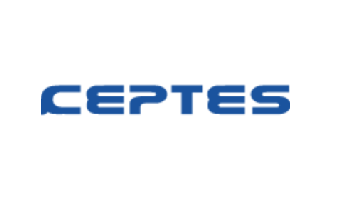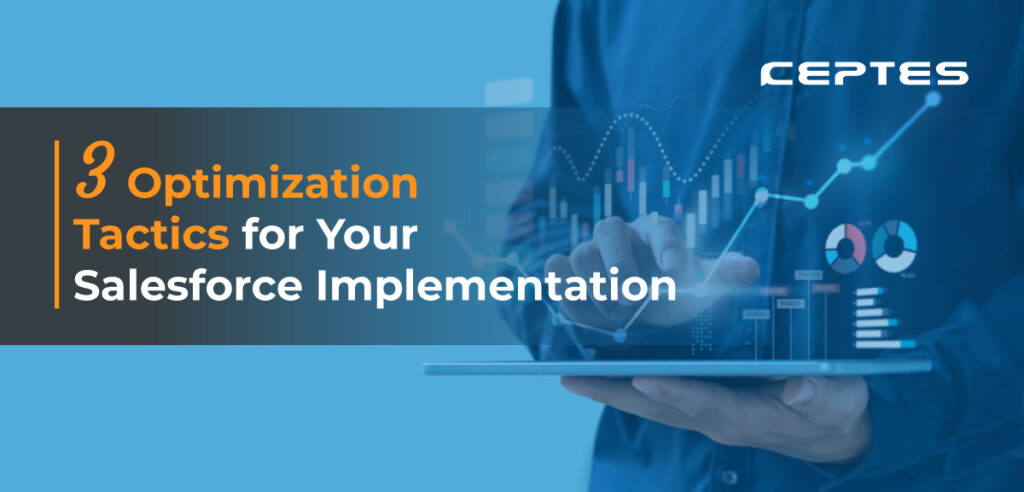Salesforce is a powerful CRM platform, which when implemented correctly can yield high ROI. It offers applications focused on sales, customer service, marketing automation, analytics, and application development- making it suitable for all kinds of businesses. With Salesforce’s extensive capabilities, it can be all too simple for enterprises to either underuse the technology or abandon it altogether after the setup process.
Planning and funding are significant requirements for implementing Salesforce. Even while most businesses make considerable investments during the implementation phase, very few of them see returns that are above average. Because of this, it is crucial for them to put good practices and policies into place when it comes to managing and sustaining their Salesforce investment.
Implementing Salesforce
Why Implement Salesforce?
It is no secret that Salesforce is the number one CRM platform used by companies around the world. Since 1999, this solution has assisted 150,000 businesses globally, including Spotify, Toyota and others, in streamlining their daily operations.
Why do so many businesses choose Salesforce as their CRM system? The reason behind its popularity is the fact that a successful Salesforce implementation ensures an average 37 per cent gain in income and business performance.
A project manager, a Salesforce consultant, or even Salesforce engineers can be needed for a full implementation, but not all businesses have the internal resources to do this, especially when they’re just getting started.
The good news is that there are plenty of experts available to assist you with the deployment and customization of your solution because Salesforce is so well-liked. Therefore, if you lack the technical expertise or are a complete newcomer to the CRM industry, you may easily assign these jobs to knowledgeable Salesforce implementation specialists.
How much time does it take?
Depending on the needs of the organization, Salesforce implementation time can vary. It can take as little as two weeks for a quick, out-of-the-box start. However, it often takes 3 to 4 weeks, though it occasionally takes considerably longer.
| Read more: THE ULTIMATE SALESFORCE IMPLEMENTATION CHECKLIST |
3 Best Optimization Practices for Salesforce Implementation
1. Change Management Strategy
The process of managing a program’s whole lifecycle- from gathering business requirements to moving code from development through production, is known as Change Management (CM).
You need to start by having a clear vision and strategy that spells out the broad objectives you hope to accomplish. You must constantly start and manage different tasks that support your program after creating your vision and strategy.
The end-users of your Salesforce implementation are crucial to its success. Make sure people are prepared to accept the change before you make any CRM adjustments. For this, you can enlist the help of an executive sponsor who can interact with teams, work with a partner to integrate Salesforce, and carry out an appropriate “Change Management Plan.”
Follow these CM stages for effective execution when you create a Salesforce change management (CM) program with key stakeholders:
- Compile ideas for change requests
- Examine and prioritize Change Requests
- Test out the change requests.
- Create a strategy for end-user communication.
If you manage to strategize an efficient change management strategy, you can rest assured of user adoption. You can utilize Salesforce licenses to their full potential with engaged staff and increased adoption.
2. Salesforce Org Strategy
Choosing the best Salesforce strategy for their company is one of the key decisions faced by business executives. Based on an enterprise’s data and process requirements, a Salesforce organization plan should be chosen.
You’ll need a thorough understanding of what your salespeople require to perform their tasks effectively when selecting how to design Salesforce—what features to employ, how you’ll lay out the pages, and what tools representatives may need.
To create a solid Salesforce org strategy for your company, you can primarily select between 4 operating models:
- Diversification: If you are a business with a variety of processes and data models, you should go for this approach. This model is most suitable for independent business units having different customers and expertise. Due to the independence of each process, the impact on one workflow won’t affect the organization as a whole.
- Replication: The design of business processes is under centralized management under this model. Apps are created centrally and made available locally. In this strategy, Salesforce Implementation Partners distribute a package to replicated BUs from a central org. You get provided with standard infrastructure and application components for global efficiencies.
- Coordination: When there are independent business units that need to be aware of one another’s transactions, the coordination model is ideal. Business units typically have higher degrees of collaboration and communication than other models since data is shared through standard technology interfaces.
- Unification: If your business has a globally integrated set of business processes where suppliers and customers are distributed geographically, this model is best for you. This model is suitable for companies whose business units share common operational procedures and data.
Another thing that should be kept in mind while adopting a Salesforce org Strategy is to include your stakeholders. They will offer priceless advice from a leadership standpoint. Adoption will benefit much from getting their support and turning them into loud supporters.
3. Hire a Salesforce Implementation Partner
A lot of hard work goes into launching your Salesforce org. And on top of that- the possibility of one mistake ruining your whole Salesforce org- is too much to risk. The solution? You can hire Salesforce Implementation Partners to do the task for you.
A qualified Salesforce consultant has worked with businesses just like yours and is aware of the potential issues that could arise during the implementation process. Many of the problems with self-implementation are solved by utilizing the expertise and experience of a partner.
A qualified Salesforce partner will be able to identify areas of your company where Salesforce may be expanded for increased productivity and organizational effectiveness.
You acquire the capacity to move not just rapidly, but efficiently by gaining immediate access to years of implementation knowledge, not to mention the internal network within the partner itself.
The benefits of hiring a Salesforce Implementation Partner are
- Going with a partner gives you access to a whole team that is prepared to start working on your Salesforce implementation as soon as possible. You no longer have to waste your time or resources in hiring or managing a competent in-house Salesforce team to implement your Salesforce org.
- These are the people who are the epitome of “been there, done that” when it comes to Salesforce. Due to their experience in a variety of projects and sectors, Salesforce’s consultants will be able to quickly identify the best option for your needs and explain why as they go. Additionally, they stay aboard with Salesforce’s most recent developments, ensuring that you never miss out.
- They have the expertise to handle situations of stress and pitfalls in a business. You can rest assured that you are in safe hands when it comes to Salesforce and is receiving quality service. This will not only help you yield a high ROI- but also maximize the productivity of Salesforce.
Summing Up
Using these Salesforce Implementation optimization Strategies, you can maximize the functionality of your investment to handle customer service, operations, marketing tasks and more. To create a vision for how Salesforce can help other areas of your organization, it is always advisable to collaborate with an implementation partner.
One of the best Salesforce consulting partners, CEPTES, can assist you in a seamless Salesforce CRM implementation. Get in touch today to avail a free consulting session.








